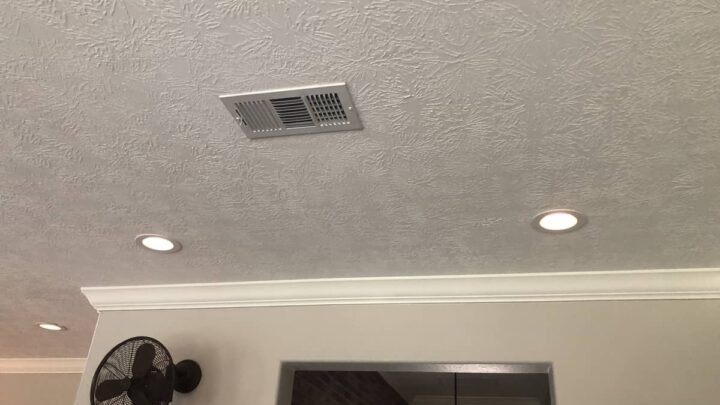Your lights might have started to dim when the AC turned on. It might not be a serious problem if your home’s lights dim when the air conditioner starts to run. It uses a lot of electricity to turn on your air conditioner. Therefore, when it turns on, it temporarily consumes electricity from other devices, such as your lightbulbs.
Please continue reading for more information if your lights flicker frequently, brighten before flickering, or dim noticeably.
Why Do My Lights Dim When The AC Kicks On?
This shouldn’t be a problem as long as your lights dim briefly after they turn on. Your monthly electric bill, which seems to soar to absurdly high levels during the warmer months that it almost seems comical, is proof that your HVAC system uses a lot of electricity.
The energy used by your home’s other electricity-using appliances, such as your lighting, is being sucked away when this massive system starts up. This is why turning on the AC causes the lights to dim quickly.
You should also observe how much the lights are dimming. The lights shouldn’t dim by more than five percent in ideal circumstances.
There are numerous causes for the lights to dim. Other events that take place in addition to the lights dimming could provide information about whether or not you are dealing with a serious problem.
Your Capacitor Could Be Damaged
Your system ought to be fine if your lights just slightly dim when the AC turns on. Your air conditioner’s compressor might be unable to start properly if the lights dim by as much as 40%. The energy required for the compressor to start up is supplied by the air conditioner capacitor.

As the capacitor loses its ability to store energy over time, it gets weaker the longer you own your AC unit. Your AC unit will steal energy from other appliances to get it going if your capacitor is unable to supply the compressor with the necessary power.
Your lights may dim as a result of your AC unit stealing power from them. In this situation, you’ll need to call your HVAC service to come in and fix or replace the capacitor.
Your Home’s Wiring May Be Faulty
The amount of energy that reaches your appliances, including your lighting, could be lessened if your home’s wiring is faulty or damaged. When your AC is running, it will consume a sizable portion of the current flow, depriving your lighting of power.
Call in an electrician and an HVAC professional to take a look if you’re worried that the problem with your system is a wiring problem.
Your AC Is On The Same Circuit As Your Other Appliances
When you turn on your air conditioner and the lights start to dim, you may hear a buzzing sound. This could be because your air conditioner and other appliances are using the same circuit. This presents a challenge because major appliances must have dedicated circuit lines according to the National Electric Safety Code.
Put large appliances on the same line as other appliances to avoid overloading the circuit and risking a fire in your house. Disconnect any appliances that are using your AC’s circuit lines in order to fix the problem. Then request an electrician to visit and devise a safer wiring arrangement.
How Can I Tell If I Have A More Severe Issue?
The capacitor in your air conditioner, as we previously mentioned, controls the amount of power required to turn on your AC. Usually, the capacitor is where issues in this area start. Capacitors lose their ability to store energy as they grow older physically.
As a result, the circuit must supply more power (in voltage), which causes the lights to dim more gradually and noticeably. It’s a sure sign that there is a problem with your condenser unit if your lights dim when the air conditioner turns on and go dark for longer than 4–5 seconds.
Should I Do Anything If My Lights Are Dimmer?
It’s more than just a hassle when lights dim when the air conditioner kicks on. It’s a sign that either there is a problem with the electrical connection to your air conditioner, it isn’t getting enough power, or possibly both.
When your air conditioner starts up, insufficient voltage can harm the system permanently and possibly reduce its lifespan. If the power consumption is high, it might also harm electronics in your home that are subjected to a voltage drop each time the air conditioner kicks on.
You must act if this is taking place to you and your house. When you call Wagner, we’ll send one of our electricians to your house to assess the issue and then resolve it. Never attempt to perform this type of electrical work on your own. It’s not only risky, but it could also result in bigger issues for your home’s air conditioner.
